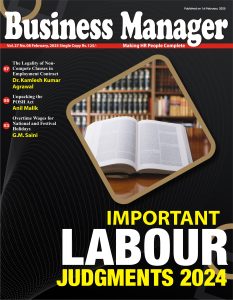The Supreme Court observed that an employee can be terminated from service if it is found that he had suppressed or given false information in regard to the matters having a bearing on his fitness or suitability to the post.
The suppression of material information and making a false statement in the verification Form relating to arrest, prosecution, conviction etc., has a clear bearing on the character, conduct and antecedents of the employee, the bench of Justices Surya Kant and JB Pardiwala observed.
The court also added that the acquittal in a criminal case would not automatically entitle a candidate for appointment to the post and it would be still open to the employer to consider the antecedents and examine whether the candidate concerned is suitable and fit for appointment to the post.
Also read: 40% of consumers in India stopped doing business with a company known to have compromised on cybersecurity: Study
Satish Chandra Yadav was serving as a Constable (General Duty) with the CRPF. He was terminated from service after it was found that he had suppressed the fact that a criminal case had been registered against him for the offences punishable under Sections 147, 323, 324, 504 and 506 of the Indian Penal Code. As the Delhi High Court upheld the dismissal, he approached the Apex Court.
In the judgment, the bench referred to various decisions including Avtar Singh v. Union of India , (2016) 8 SCC 471 : on the question of suppression of information or submitting false information in the verification Form. The court noted that the principles of law laid therein governing the subject are bit inconsistent and that even after, the larger Bench decision in the case of Avtar Singh (supra) different courts have enunciated different principles. The court therefore proceeded to shortlist the broad principles of law which should be made applicable to the litigations of the present nature
The court also added that the wide discretionary power with which it is invested under Article 136 is to be exercised sparingly and in exercised sparingly and in exceptional cases only.
Satish Chandra Yadav vs Union of India, SLP(C) 20860 of 2019 | 26 September 2022
LiveLaw (SC) 798
Source: Live Law
Stay connected with us on social media platform for instant update click here to join our LinkedIn, Twitter & Facebook
































Add comment